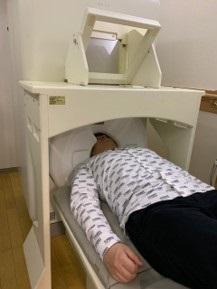
Credit: Osaka City University
Stress is prevalent in modern society and can affect human health through its effects on appetite. However, knowledge about the neural mechanisms related to the alteration of the subjective level of appetite caused by acute stress in humans remains limited. We focused on the effects of stress caused by expecting critical personal events such as school examinations and public speaking engagements on appetite and aimed to clarify the neural mechanisms by which acute stress affects appetite in healthy, non-obese males during fasting.
In total, 22 fasted male volunteers participated in two experiments (stress and control conditions) on different days. The participants performed a stress-inducing speech-and-mental-arithmetic task under both conditions, and then viewed images of food, during which, their neural activity was recorded using magnetoencephalography (MEG). In the stress condition, the participants were told to perform the speech-and-mental-arithmetic task again subsequently to viewing the food images; however, another speech-and-mental-arithmetic task was not performed actually. Subjective levels of stress and appetite were then assessed using a visual analog scale. Electrocardiography was performed to assess the index of heart rate variability reflecting sympathetic nerve activity.
The findings showed that subjective levels of stress and sympathetic nerve activity were increased during the MEG recording in the stress condition, whereas appetite gradually increased during the MEG recording only in the control condition. The decrease in alpha (8-13 Hz) band power in the frontal pole caused by viewing the food images was greater in the stress condition than in the control condition, suggesting that the acute stress can suppress the increase of appetite and this suppression is associated with the alteration of the neural activity in the frontal pole.
Since it has been reported that the frontal pole is involved in the thinking and planning of future actions and the cognitive control of appetite, it is speculated that the participants’ expectations of the forthcoming speech-and-mental-arithmetic task in our present study activated the frontal pole for the thinking and planning of future actions and this activation of the frontal pole might have interfered with the regulatory processes related to appetite that were also subserved by the frontal pole, resulting in the suppression of appetite under the stress caused in our experiment. These findings will provide valuable clues to gain a further understanding of the neural mechanisms by which acute stress affects appetite, and could contribute to the development of methods to prevent and reduce the adverse effects on health caused by stress.
###
Media Contact
Chiaki Hasegawa
[email protected]
81-666-053-410
Related Journal Article
http://dx.




